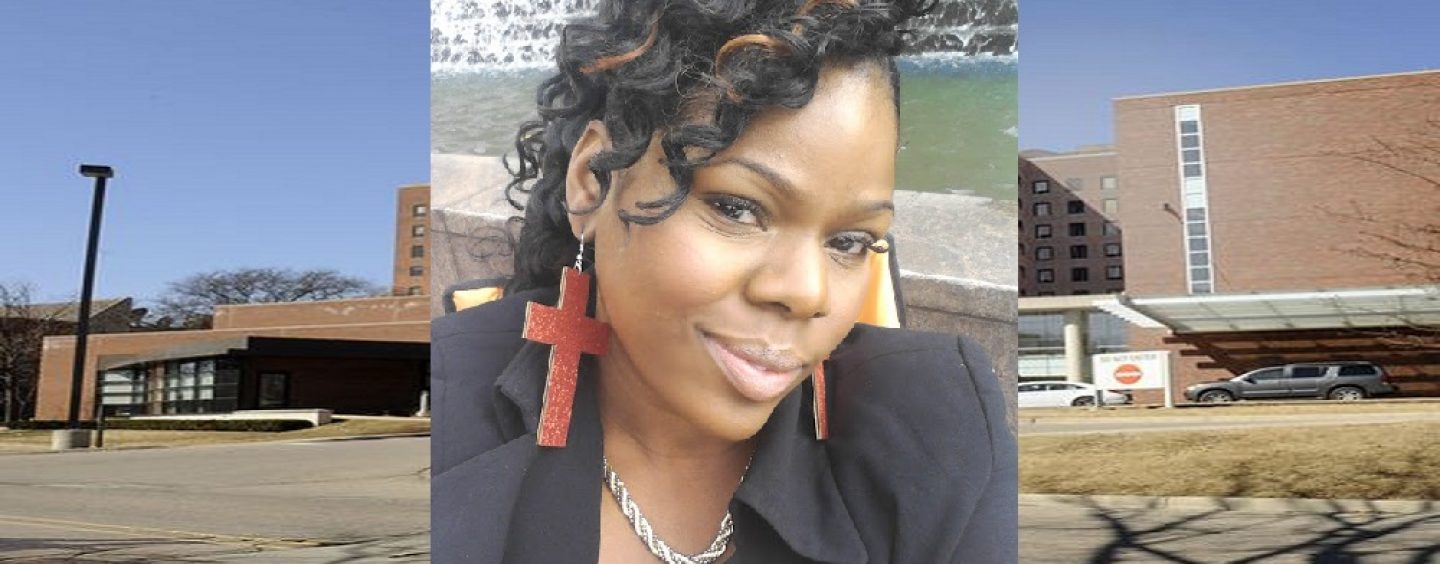
Black Nurse Sues Hospital Over White Patient’s Request To Not Be Cared For By BT-1000! (Video)
by Tj Sotomayor August 24, 2018 0 commentsIs This Really Wrong Though?
By: Tommy “Tj” Sotomayor
https://youtu.be/PjwfLFy_nU0
Black nurse claims discrimination over patient request
A registered nurse filed suit against Beaumont Health for allegedly honoring a patient’s request not to be cared for by an African-American.
Teoka S. Williams, who works at Beaumont Hospital in Dearborn, claims the health system violated federal civil rights laws and Michigan’s Elliot-Larson Civil Rights Act on Oct. 2, 2017, when she was barred from taking care of the patient.
Williams, who has been a nurse for Beaumont for 10 years, was working the night shift and assigned to care for two patients in Room 881, according to the suit filed Monday in U.S. District Court in Detroit.
On her way out of the room after examining both patients at the start of her shift, she overheard the patient in Bed 2 say she “didn’t want a ‘black (woman)’ caring for her,” the lawsuit claims.
After Williams told her clinical manager about the patient’s comment, she was barred from entering the room, according to the filing. She was required to report on the patients at the end of her shift, even though she’d been barred from the room.
She complained to the hospital’s human resources department but was told that “patient requests are honored all the time and the next time it happens she would simply be taken off the assignment altogether,” Williams claims.
“A patient requested only white care, no care from any African-American caregivers, and a supervisor granted that and excluded this registered nurse from the patient room altogether,” said Frankenmuth attorney Julie Gafkay, who is representing Williams.
“(The lawsuit) is about being denied the opportunity to do your job duties based on your race, and being segregated from your job duties based on your race,” she said. “It’s about how the health system accommodated racism and allowed a patient to discriminate against a very good and valuable employee.”
Gafkay said racial discrimination against employees is not uncommon in the health care industry because facilities often routinely honor patients requests, even if the requests are discriminatory.
“While we cannot comment on the specifics of this case because it is pending litigation, we can say that Beaumont’s highest priority is providing a safe environment that is free from discrimination for both our patients and staff, and delivering care with compassion, dignity and respect,” Beaumont said Wednesday in a statement to The News.
In 2013, Gafkay brought suit on behalf of veteran neonatal nurse Tonya Battle after Flint’s Hurley Medical Center honored the request of a swastika-tattooed father who demanded his newborn be cared for only by white nurses. Three other black employees joined in the lawsuit.
A note was placed on the baby’s chart saying no African-Americans were to care for the infant. The note was removed after 24 hours, but the employees had already been harmed, Gafkay said.
“The damage was how they felt embarrassed and humiliated not to be able to do their job just because of the color of their skin.”
The case was settled when Hurley agreed to implement new policies aimed at preventing similar discrimination. The hospital also paid $200,000 in compensation to the four employees.
Similar lawsuits have been brought across the state and nation with mixed results, Gafkay said. The U.S. Supreme Court has not ruled on whether employers’ actions constitute discrimination when they accommodate the racist demands of patients or customers.
Two cases brought by Gafkay in the U.S. District Court in Grand Rapids were thrown out by judges. The judges ruled the employees weren’t actually harmed because they were assigned to care for other patients.
In one of the Grand Rapids cases, the judge’s dismissal was affirmed by the U.S. Court of Appeals for the Sixth Circuit. Gafkay appealed to the U.S. Supreme Court, but the panel declined to take up the case.
Two additional cases brought by Gafkay in federal court in Detroit currently are underway. In one of those cases, a judge refused to dismiss the case, saying there was enough evidence of harm to allow the lawsuit to proceed.
Gafkay said health-care institutions should not accommodate patients at the expense of employees’ civil rights.
“(Hospitals should) tell the patient, You’re going to get the care from whomever we have on staff. We hire qualified individuals and if you don’t like it, then you always have the choice to go somewhere else.”







No Comments so far
Jump into a conversationNo Comments Yet!
You can be the one to start a conversation.Only registered users can comment.